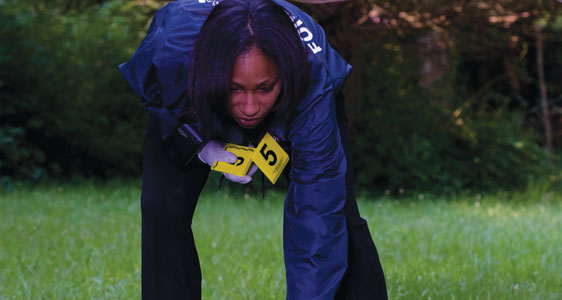
Criminal Justice Technology-Forensic Science
Forensic Science is a concentration under the curriculum of Criminal Justice Technology. This curriculum is designed to provide knowledge of forensic science systems and operations. Study will focus on local, state, and federal law enforcement, evidence processing and procedures.
Students will learn both theory and hands-on analysis of latent evidence. They will learn fingerprint classification, identification, and chemical development. Students will record, cast, and recognize footwear and tire-tracks; and process crime scenes. Issues and concepts of communications and the use of computers and computer assisted design programs in crime scene technology will be discussed.
Graduates should qualify for employment in a variety of criminal justice organizations especially in local, state, and federal law enforcement, and correctional agencies.
What Students Learn
Students successfully completing the Criminal Justice-Forensic Science Program will be able to:
- Classify fingerprints
- Identify fingerprints
- Record, cast, and recognize footwear and tire-tracks
- Process crime scenes
- Describe the three components of the criminal justice system and explain how they interact
- Apply ethical considerations to the decision-making process in identifiable criminal justice situations
- Compare DNA samples
- Produce accurate, concise, and complete police reports and related paperwork.
College Admissions
Curriculum Guides
Program Info Sheets
Contacts
Please Note:
Curriculum guides are for students enrolled during the current academic year. Students enrolled in a previous academic year should visit the Program Evaluation link in Self-Service to find the required list of courses for graduation. For assistance, consult your advisor.

